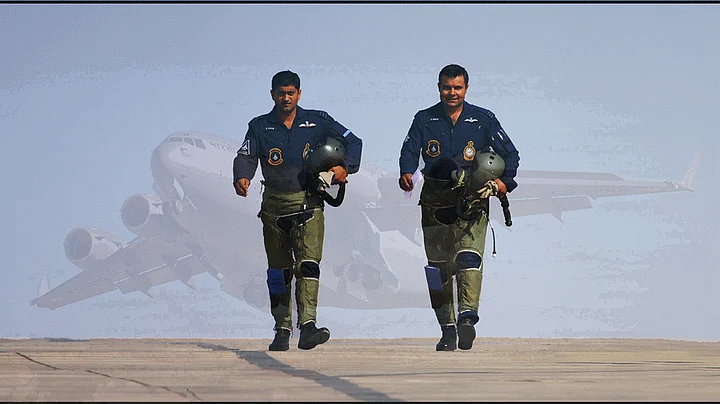The term “flying high” takes on a whole new meaning for the Indian Air Force pilots who reportedly regularly consume uppers and downers with the government’s blessing. Confused?
In tough times, when the enemy rears its head, our Air Force pilots turn to a potent weapon: a little orange pill. The enemy is fatigue and insomnia, a nemesis which claims more lives than combat duty. So that’s where Dexedrine or Modafinil, or the ‘go pill’ (an ‘upper’), comes in to spike adrenaline levels, slay fatigue, enhance alertness and let the pilots stay awake in long, wartime sorties. This sudden rise rush of adrenaline in pilots is countered by the ‘no-go’ pill, (a ‘downer’) which has a calming, sedating effect.
Performance-enhancing drugs in military aviation are used extensively in the United States and the United Kingdom but we are only beginning to fully understand their effects and questioning the safety of these elixirs in the cockpit.
‘Authorised’ Stimulants in Military Aviation
Drones, night-vision goggles and other sophisticated technology have turned war into a 24/7 event. But blame the unpredictable long work hours, erratic, insufficient sleep schedules and circadian rhythm disruptions for chronic pilot fatigue.
It is scientifically proven that people who are sleep deprived have the same chemical imbalance in their brains as those who are moderately drunk – so they have difficulty in thinking, make more mistakes and have memory problems.
The widespread use of stimulants in military warfare is new in India, but globally it dates back to the Second World War in 1937 where the first prescription performance-enhancers were used by the Japanese and the Germans. Following the war, the use of stimulants was studied extensively and it had appealing results.
Are They Effective?
In small doses of 5 to 10 mg, these drugs are used to treat hyperactive disorder in children and sometimes sleep disorders in adults.
These pills were in the works for the past three to four years, and were first used in the country in IAF’s ‘Livewire’ exercises conducted from October 31 to November 8 last year, across all of its 54 airbases in the country.
The pill was not only used by fighter jet and helicopter pilots, but also by air traffic controllers and even the top officers to “good effect” during Livewire, which was an exercise aimed at testing offensive and defensive capabilities wherein “swing forces” rapidly moved from the western theatre to the eastern one and vice-versa, the report said.
Side-Effects?
These pills are not meant for everyday or even long-term use.
In 2012, a large-scale analysis of the huge number of Post Traumatic Stress Disorder (PTSD) cases in the US military were pinned on both perilous combat environments and the indiscriminate, long-term use of the uppers and downers.
These stimulants also enhance emotional memory, so a soldier taking them could be at a higher risk of becoming fear-conditioned and getting PTSD in war zones. This has been studied extensively in both human and animal studies. They are relatively safe but there is a huge potential for dependence and abuse.
These are highly addictive drugs which can alter sleep cycles for weeks. The other side-effects include elevated blood pressure and heart rate, nervousness and restlessness.
In 2013 in US, the “go-pills” came under fire when two Air National Guard pilots mistakenly bombed Canadian troops and claimed the stimulants impaired their judgement. Their lawyers contend that the US military pressured their clients to take the prescription pills.
Anecdotes from US soldiers after the Afghanistan War of just how these drugs hamper acumen are scary. In a Navy seal’s memoir, No Easy Day, the marine recalls how uppers and downers are “popped like candy” and that “nobody gets rest without these pills”. And the consequences have been deadly. “A recent Air Force investigation into a crash that killed four special operators in 2010 found that the pilot had 4 go pills. It is possible that fatigue delayed a necessary response.”
By contrast, civil pilots are pretty much banned from using anything stronger than an espresso shot to stay awake.
Though the Indian Air Force was quick to dismiss the adverse effects of these pills, the big question remains: Is it safe to chemically induce a false sense of bravado by prescription pills when deadly weapons are handy? Does the cocktail sound frightening to you?
(At The Quint, we question everything. Play an active role in shaping our journalism by becoming a member today.)
